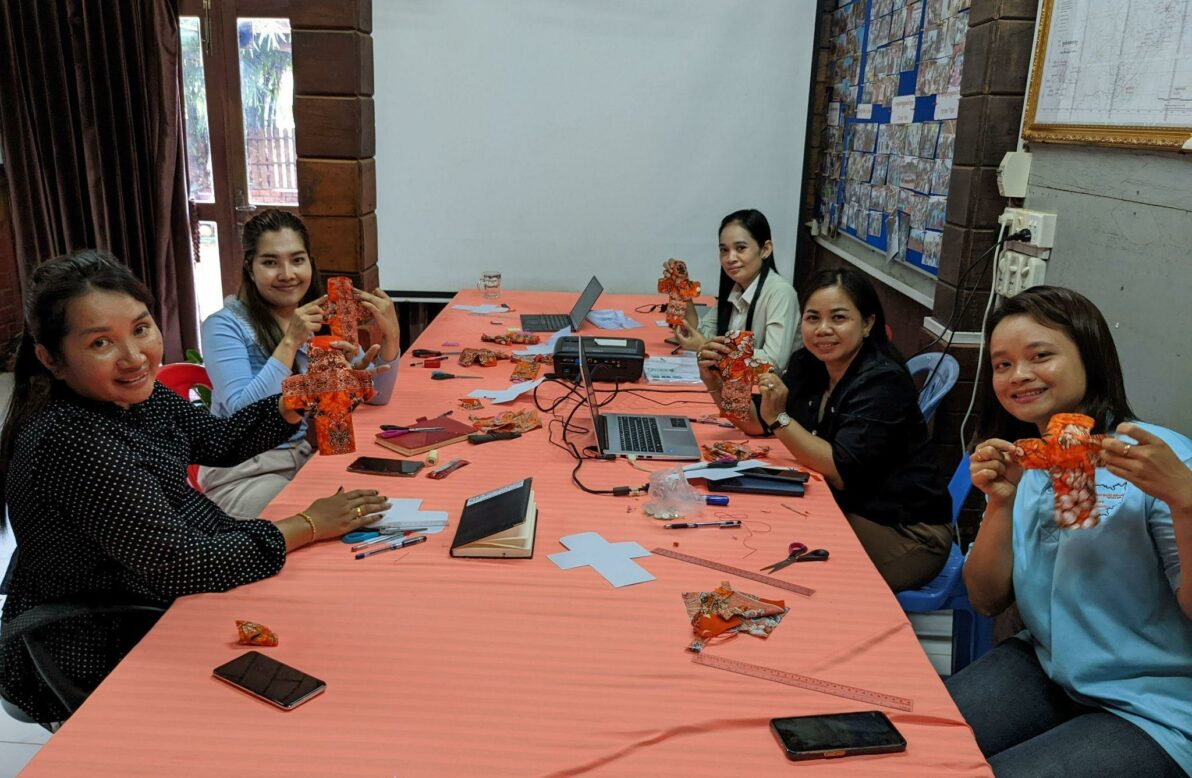Pad Making Training in Cambodia

June 1, 2022
Partner Schools
2 mins
In May, members of the Education Team in Cambodia took part in pad-making training to learn how to make reusable sanitary pads.
The team will cascade this training to Girls’ Club facilitators in UWS schools to teach girls and mother’s how to make reusable sanitary pads at home.
In rural communities in Cambodia, girls often have no access to period products or cannot afford them, meaning they use makeshift items like old cloth material and rags which they reuse multiple times which can be unhygienic and pose health risks. For girls who can access and afford products, disposable sanitary pads are used which is costly and unsustainable as communities often do not have appropriate waste disposal systems and result in burning rubbish.
Menstruation is a stigmatized and taboo topic and there is a general lack of knowledge and awareness around the onset and management of menstruation amongst girls, teachers and parents. Many girls stay at home and miss school when they are on their period because they are shy and uncomfortable. As a result, they can miss out on a large amount of time at school per month and for some this can lead to dropping out of school altogether, particularly adolescent girls that are high-risk of dropping out that face to additional risk factors.
This project is part of the UWS and EAC Dropout Prevention Programme and will be piloted in one UWS school in Cambodia before cascading to 89 schools participating in the project.
“I attended the pad making training for adolescent girls. After the training was conducted, I really appreciated that it will decrease monthly expenses, it is easy to produce as it made by hand, easy to clean and wash, it decreases environment impact and students will understand more about health and hygiene as well.”
– Senghun, UWS Dormitory Officer
“The pad making training is very important for adolescent girls and mothers to make them confident to discuss their period with the mother or friends and they will not need to worry about having no pad every month when they go to school or stay at home. They can make the cloth pad on their own to save the monthly cost and protect the environment for their community. Therefore, they can learn and also cascade this technique to their friends, sisters, or others in the community. Our Education Team along with mothers will support girls in producing pads and supporting menstrual hygiene management as they need” – Narith, UWS Cambodia Deputy Country Director & Education Manager





